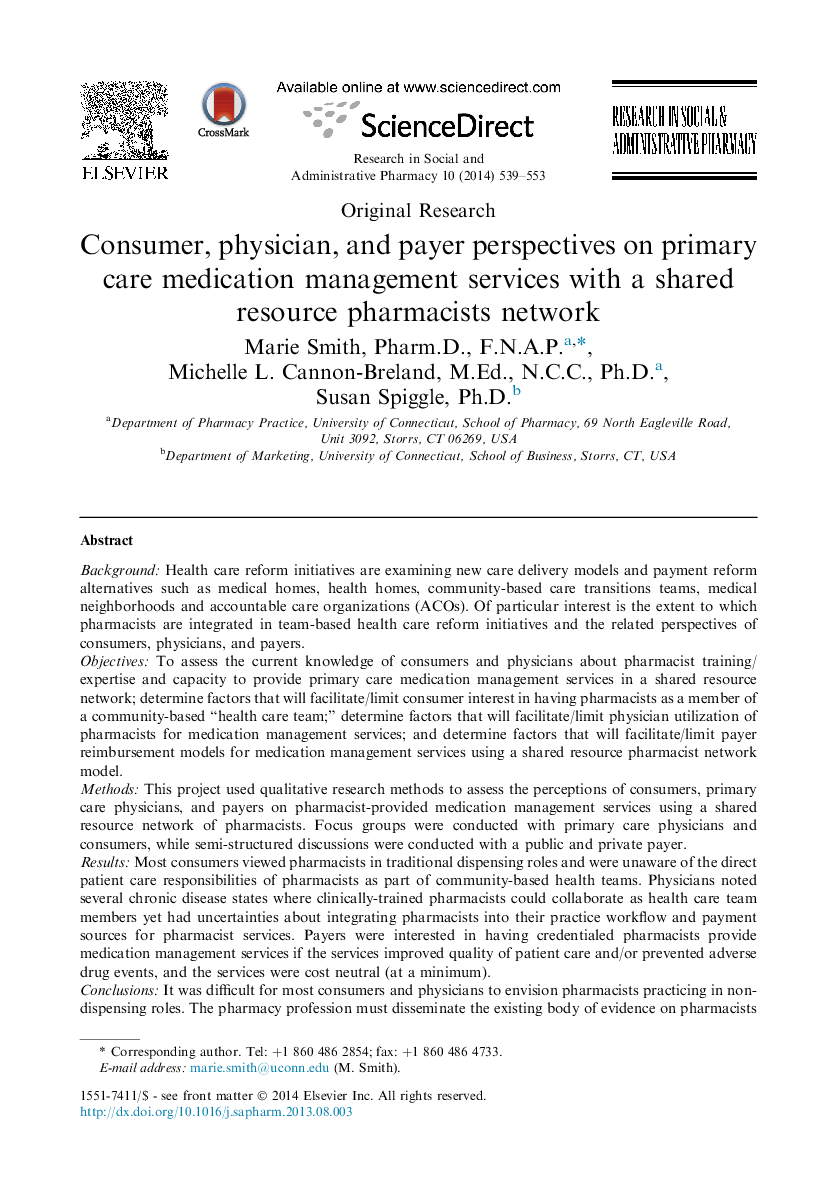| کد مقاله | کد نشریه | سال انتشار | مقاله انگلیسی | نسخه تمام متن |
|---|---|---|---|---|
| 2508606 | 1117614 | 2014 | 15 صفحه PDF | دانلود رایگان |
BackgroundHealth care reform initiatives are examining new care delivery models and payment reform alternatives such as medical homes, health homes, community-based care transitions teams, medical neighborhoods and accountable care organizations (ACOs). Of particular interest is the extent to which pharmacists are integrated in team-based health care reform initiatives and the related perspectives of consumers, physicians, and payers.ObjectivesTo assess the current knowledge of consumers and physicians about pharmacist training/expertise and capacity to provide primary care medication management services in a shared resource network; determine factors that will facilitate/limit consumer interest in having pharmacists as a member of a community-based “health care team;” determine factors that will facilitate/limit physician utilization of pharmacists for medication management services; and determine factors that will facilitate/limit payer reimbursement models for medication management services using a shared resource pharmacist network model.MethodsThis project used qualitative research methods to assess the perceptions of consumers, primary care physicians, and payers on pharmacist-provided medication management services using a shared resource network of pharmacists. Focus groups were conducted with primary care physicians and consumers, while semi-structured discussions were conducted with a public and private payer.ResultsMost consumers viewed pharmacists in traditional dispensing roles and were unaware of the direct patient care responsibilities of pharmacists as part of community-based health teams. Physicians noted several chronic disease states where clinically-trained pharmacists could collaborate as health care team members yet had uncertainties about integrating pharmacists into their practice workflow and payment sources for pharmacist services. Payers were interested in having credentialed pharmacists provide medication management services if the services improved quality of patient care and/or prevented adverse drug events, and the services were cost neutral (at a minimum).ConclusionsIt was difficult for most consumers and physicians to envision pharmacists practicing in non-dispensing roles. The pharmacy profession must disseminate the existing body of evidence on pharmacists as care providers of medication management services and the related impact on clinical outcomes, patient safety, and cost savings to external audiences. Without such, new pharmacist practice models may have limited acceptance by consumers, primary care physicians, and payers.
Journal: Research in Social and Administrative Pharmacy - Volume 10, Issue 3, May–June 2014, Pages 539–553
